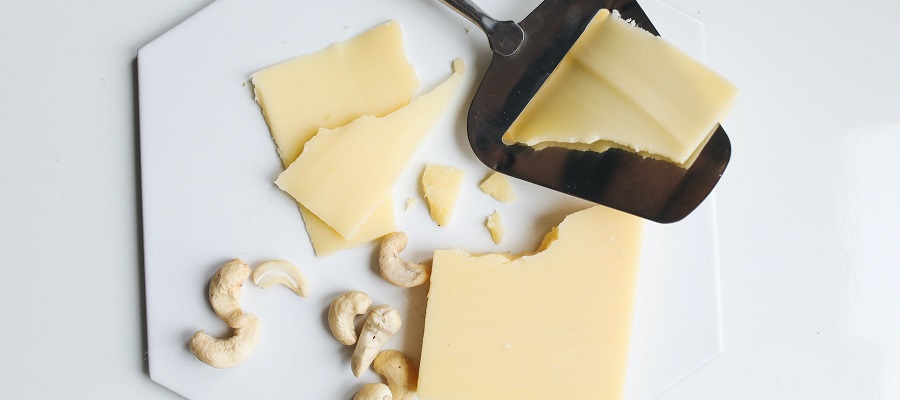Virgin olive oil is made from pure, fresh olives, whereas other types of olive oil may be made from a blend of cold-pressed and processed oils. The production of virgin olive oil involves crushing the olives to extract the oil, with minimal processing. This results in an oil that has a fruity flavor and a strong, pungent aroma.
Extra-virgin olive oil is the highest-quality type of virgin olive oil, with a free acidity of less than 0.8% and a peroxide value of less than 20 meq/kg. It is made from pure, cold-pressed olives and has a strong, pungent flavor and a fruity aroma.
Other types of olive oil, such as pure olive oil, light olive oil, and olive-pomace oil, are made from a blend of cold-pressed and processed oils. These types of oil are not as high quality as virgin olive oil and do not have the same flavor and aroma. They may also have a lower smoke point, making them less suitable for high-heat cooking.
In general, it's a good idea to choose high-quality olive oil, such as extra-virgin olive oil, for the best flavor and health benefits.
Treatment of arthritis with olive oil .. Has its benefit been proven medically?
There is some evidence to suggest that olive oil may have potential health benefits for people with arthritis. However, it is important to note that more research is needed to fully understand the potential effects of olive oil on arthritis and to determine the most effective dosage and methods of use.
Olive oil is a rich source of antioxidants, including polyphenols, which may have anti-inflammatory properties. Some studies have suggested that polyphenols found in olive oil may help reduce inflammation and improve symptoms of arthritis.
In addition, olive oil is a good source of monounsaturated fats, which may also have anti-inflammatory effects. Some research has suggested that a diet rich in monounsaturated fats, such as those found in olive oil, may help reduce inflammation and improve symptoms of arthritis.
While olive oil may have potential health benefits for people with arthritis, it is important to note that it should not be used as a sole treatment for this condition. It is always best to consult with a healthcare professional to determine the most appropriate treatment plan for your individual needs.
How do I distinguish between original and adulterated olive oil?
There are several ways to distinguish between original and adulterated olive oil:
Look for a seal or certification: Look for a seal or certification from a reputable organization, such as the International Olive Council (IOC) or the North American Olive Oil Association (NAOOA), which verifies that the oil meets certain standards for purity and quality.
Check the label: Look for information about the type of olive oil and where it was produced. Extra-virgin olive oil should be made from pure, cold-pressed olives and should not contain any other oils or additives.
Check the packaging: High-quality olive oil is usually sold in dark glass or metal containers, which helps protect the oil from light and air. Avoid oil that is sold in clear plastic or glass bottles, as it may have been exposed to light and air, which can degrade the oil.
Taste and smell the oil: High-quality olive oil should have a fruity, pungent aroma and a full-bodied, slightly bitter taste. If the oil has a bland or off taste, it may be of lower quality or have been adulterated with other oils.
Look for a lower price: If the price of the olive oil seems too good to be true, it may be an indication that the oil is not of high quality or has been adulterated with other oils.
It is always a good idea to purchase olive oil from a reputable source and to be cautious of products that do not provide clear information about their origins and production methods.
How to know the original olive oil by light?
There are several ways to determine the authenticity and quality of olive oil, but it is not possible to do so solely by examining its color or appearance. Here are a few tips for identifying high-quality olive oil:
1- Look for a seal or certification: Look for a seal or certification from a reputable organization, such as the International Olive Council (IOC) or the North American Olive Oil Association (NAOOA), which verifies that the oil meets certain standards for purity and quality.
2- Check the packaging: High-quality olive oil is usually sold in dark glass or metal containers, which helps protect the oil from light and air. Avoid oil that is sold in clear plastic or glass bottles, as it may have been exposed to light and air, which can degrade the oil.
3- Check the label: Look for information about the type of olive oil and where it was produced. Extra-virgin olive oil should be made from pure, cold-pressed olives and should not contain any other oils or additives.
4- Check the expiration date: Olive oil has a relatively long shelf life, but it can still go rancid over time. Check the expiration date on the label to ensure that you are getting a fresh bottle of oil.
5- Taste and smell the oil: High-quality olive oil should have a fruity, pungent aroma and a full-bodied, slightly bitter taste. If the oil has a bland or off taste, it may be of lower quality.
Which is the best olive oil brand in the world?
It is difficult to determine a single "best" olive oil brand, as the quality of olive oil can vary widely depending on factors such as the type of olives used, the production methods, and the region where the olives are grown. Some well-respected olive oil brands that are known for producing high-quality olive oils include:
1- California Olive Ranch
2- Colavita
3- Frantoia
4- Olio Santo
5- O-Med
6- Oro Bailen
7- Olio2go
8- Olio Santo
9- Partanna
10- Pietro Coricelli
It is always a good idea to look for olive oils that have been certified by reputable organizations, such as the International Olive Council (IOC) or the North American Olive Oil Association (NAOOA), which verify that the oil meets certain standards for purity and quality. It is also helpful to read reviews and do some research to find an olive oil that meets your individual preferences and needs.


